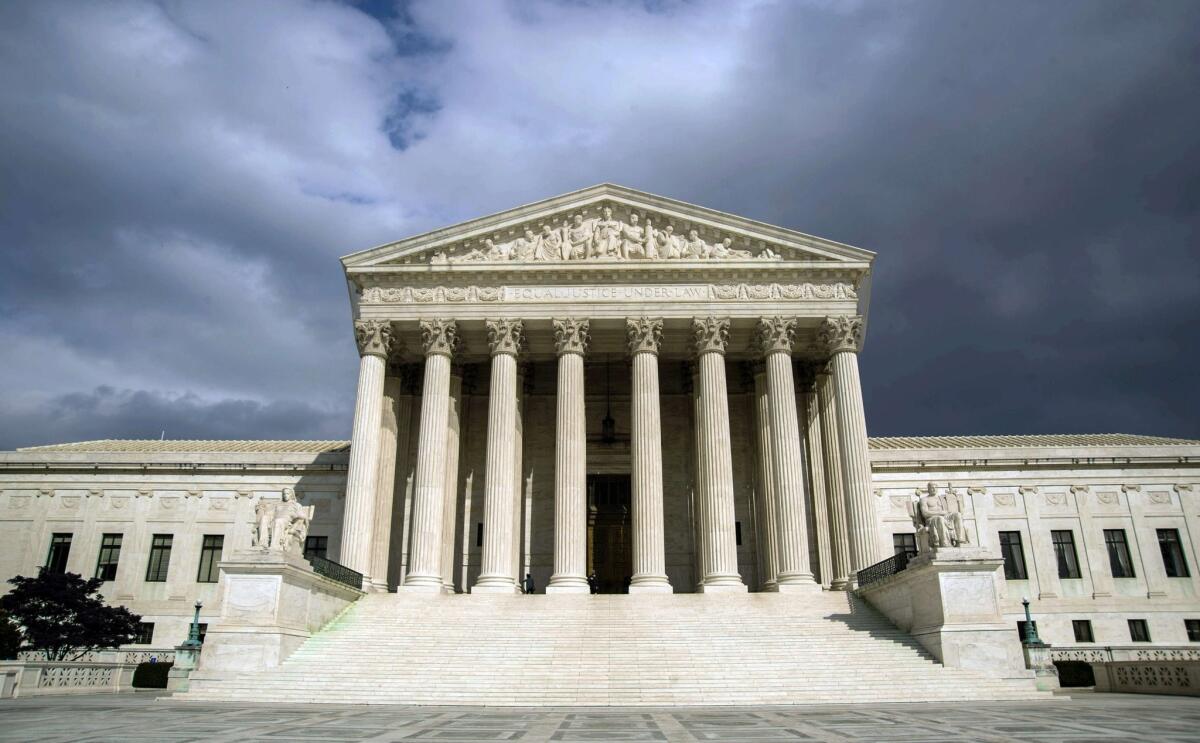Supreme Court deals setback to young relatives of legal immigrants

Foreign-born grandchildren, nieces and nephews of Americans and legal immigrants will lose their place in line to obtain a visa if they reach age 21 before the process is complete, the Supreme Court ruled Monday.
Upholding a disputed part of the law by a 5-4 vote, the justices decided these “more distant” relatives will “age out” at 21. That means they will no longer considered to be children who can qualify for “piggy-backing” on a parent, said Justice Elena Kagan.
The majority rejected the view of immigration advocates who argued the law was intended to keep extended families together.
The decision is a setback for thousands of foreign-born relatives of U.S. citizens and legal U.S. immigrants who have sometimes waited years or decades to join their families in this country.
But government officials say the decision will help thousands of others who have been waiting in the same line for a visa. In their court filings, government officials cited the “zero-sum world of allocating a limited number of visas,” which requires deciding who should be first in the waiting line.
Under the Immigration and Nationality Act, citizens and lawful permanent residents may apply for immigration visas for certain family members, including spouses, siblings and children. These are referred to as the citizen’s “principal beneficiaries.”
These would-be immigrants may, in turn, list their children and seek a visa for them to come along with them. To keep families together, the law said these children are “entitled to the same status” as their parents.
But the law was unclear on what happened to these children if they grew up and turned 21 before their parents obtained a visa to enter the United States.
The U.S. Board of Immigration Appeals decided in 2008 these would-be immigrants were no longer children and would lose their preferred place in line for a visa.
Immigrants-rights lawyers in California sued on behalf of a class of nieces, nephews and grandchildren and argued it would be unfair to break apart families in this way. They cited the example of an El Salvador woman who finally obtained a visa, but had to leave her son behind because he was over age 21.
The 9th Circuit Court of Appeals agreed with the challengers in a 6-5 decision and ruled these young people should keep their place in the visa line.
But the Supreme Court agreed to hear the Obama administration’s appeal and decided to uphold the government’s reading of a confusing and complicated provision.
Kagan said one passage in the law says children who turn 21 shall be “converted to the appropriate category” and lose their preferred status as children. Justices Anthony M. Kennedy and Ruth Bader Ginsburg agreed with her, and Chief Justice John G. Roberts Jr. and Justice Antonin Scalia agreed in a separate opinion. The case was called Scialabba v. Cuellar de Osorio.
In dissent, Justice Sonia Sotomayor cited another part of the law that says children should retain their “orginal priority date.” Joined by three other justices, she would have ruled the young adults should keep their place in line to immigrate with their parents.
The decision does not affect children who are “principal beneficiaries.” They retain their place in line even after turning 21.
More to Read
Start your day right
Sign up for Essential California for news, features and recommendations from the L.A. Times and beyond in your inbox six days a week.
You may occasionally receive promotional content from the Los Angeles Times.







